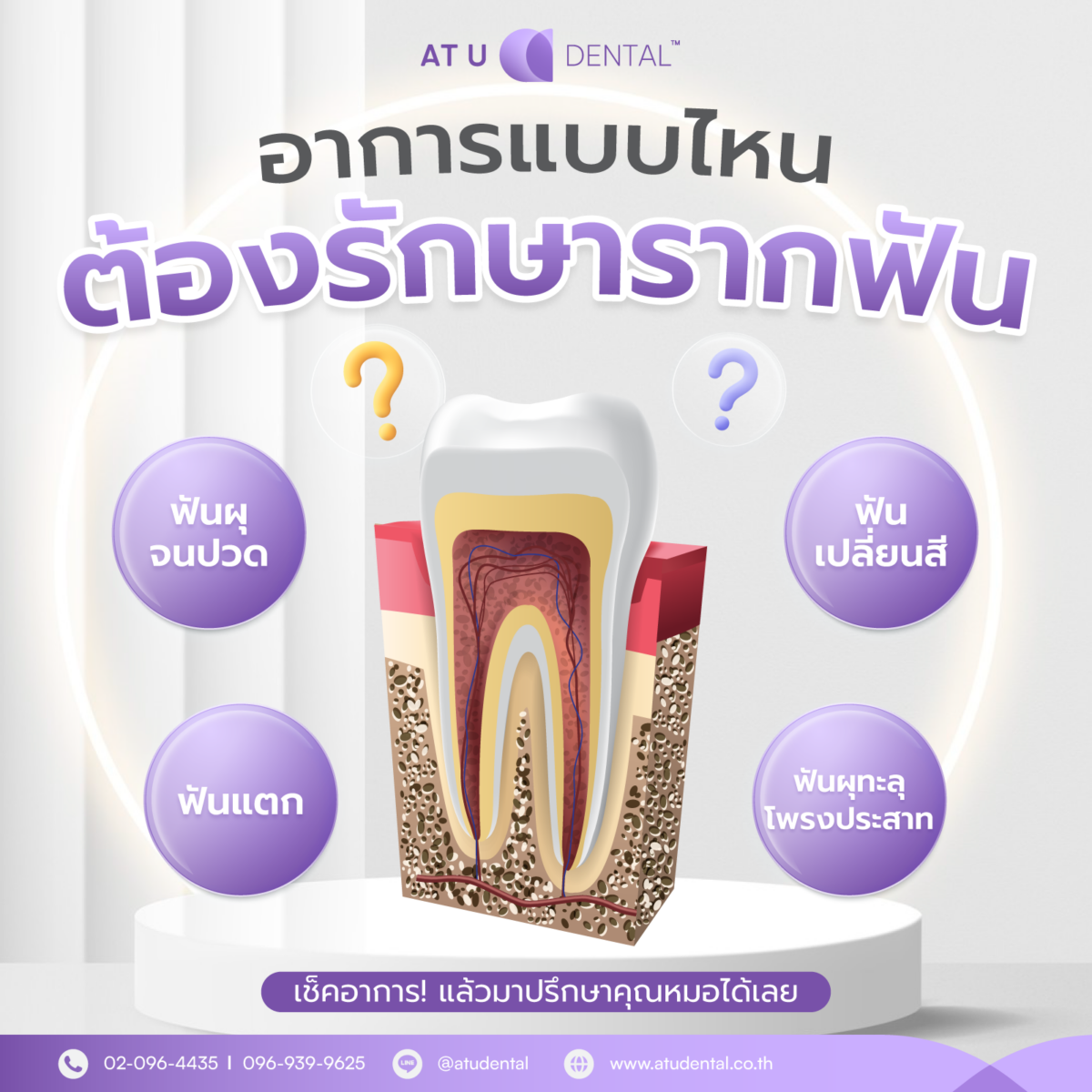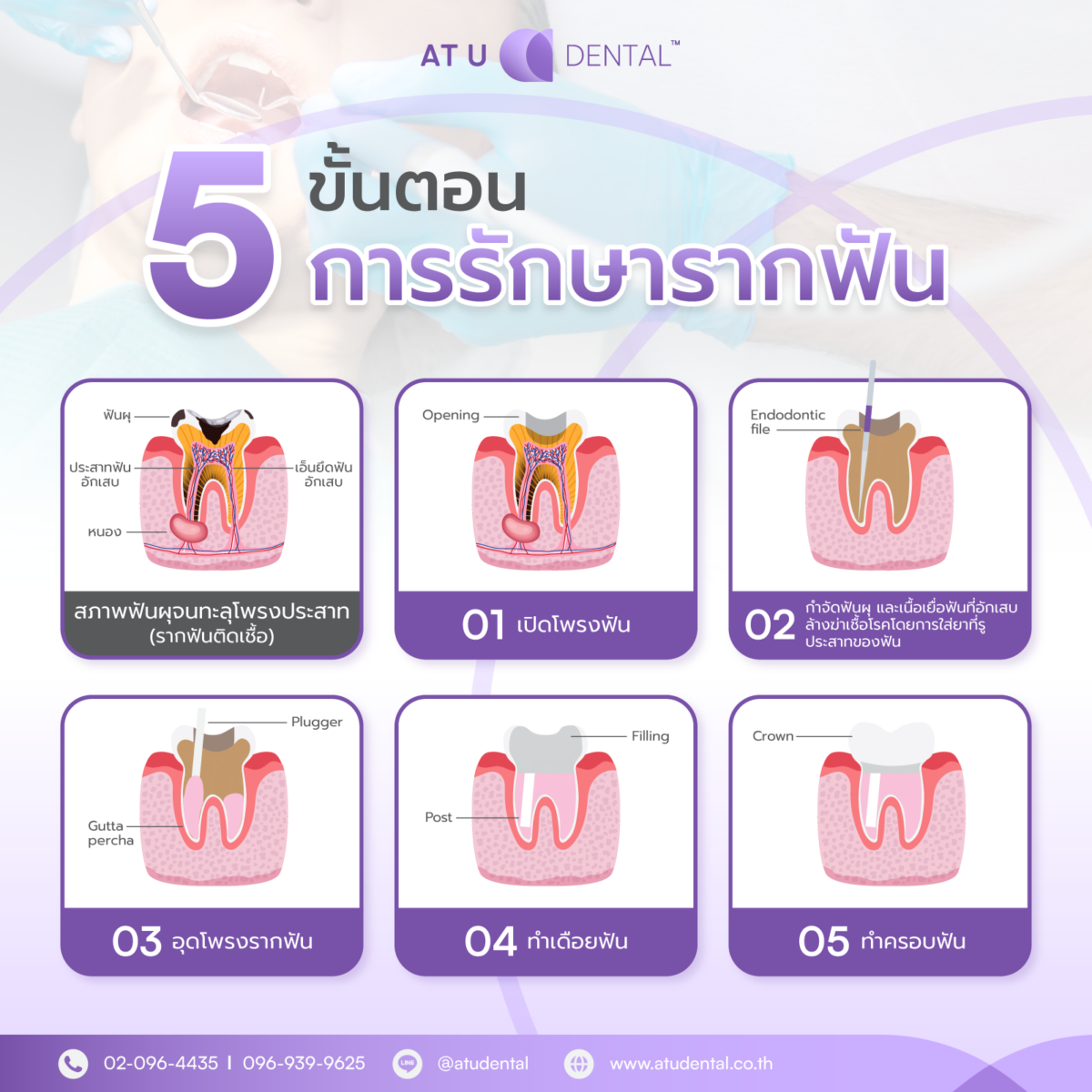Dental Clinic
คลินิคทันตกรรม
Root Canal Treatment
Root canal treatment is a dental procedure designed to treat infections or severe inflammation within the pulp chamber and root canals of a tooth. The goal of the treatment is to eliminate bacteria, reduce inflammation, and prevent the spread of infection to other areas of the mouth. Teeth that undergo root canal treatment can be restored to normal function and remain durable over the long term.
Signs You May Need Root Canal Treatment

- Severe toothache, especially when chewing or exposed to hot or cold stimuli
- Tooth discoloration, which may indicate pulp tissue death
- Swollen gums with abscesses near the tooth root
- Persistent tooth sensitivity and looseness
- Presence of pus around the tooth root, sometimes accompanied by fever if the infection spreads

Steps in Root Canal Treatment
- Diagnosis and Preparation
- The dentist conducts a thorough examination and may use X-rays to detect infections within the root canals.
- Local Anesthesia
- An anesthetic is administered to numb the area, ensuring the procedure is pain-free.
- Access Opening
- The dentist creates an opening in the tooth to access the pulp chamber and root canals.
- Removal of Infected Tissue and Cleaning
- Specialized tools, such as root canal files, are used to remove infected tissue and enlarge the canals for filling preparation.
- Root Canal Filling
- The canals are sealed with a permanent filling material, such as gutta-percha, to prevent reinfection.
- Crown Placement
- The treated tooth may require a crown for reinforcement, restoring its strength and functionality.
Post-Treatment Care
- Avoid chewing hard foods on the treated side until healing is complete.
- Maintain oral hygiene by brushing and flossing regularly.
- Follow the dentist’s instructions regarding medication and follow-up visits.
- If swelling or pain persists, take pain relievers as prescribed by the dentist.
- Contact the dentist immediately if severe pain or unusual symptoms, such as fever, occur.
Frequently Asked Questions (FAQ)
Q: Can a tooth treated with a root canal function like a normal tooth?
A: Yes, with a proper crown, the treated tooth can function almost like a natural tooth.
Q: Does root canal treatment hurt?
A: Anesthesia is used during the procedure to minimize pain, though mild discomfort may occur afterward.
Q: Why is a crown necessary after root canal treatment?
A: A crown strengthens the treated tooth and protects it from fractures.
Q: How long does root canal treatment take?
A: Depending on the complexity, it may take 1–2 hours per session and may require multiple visits.
Q: Can a root canal-treated tooth become reinfected?
A: Proper care and a secure filling significantly reduce the risk, but regular check-ups are essential.
Q: How much does root canal treatment cost?
A: The cost depends on the tooth’s position and the case complexity, typically ranging from 5,000–15,000 THB.
Q: How do I know if I need root canal treatment?
A: If you experience severe toothache, discoloration, or swollen gums, consult a dentist for evaluation.
Q: How should I care for my teeth after root canal treatment?
A: Follow your dentist’s instructions diligently and maintain good oral hygiene to prevent reinfection.
Root canal treatment is an effective way to save infected or inflamed teeth, helping patients retain their natural teeth without the need for extraction. By following the dentist's advice and maintaining proper dental care, the treated tooth can remain healthy and functional for many years.
References:
- The Dental Association of Thailand
- Guidelines for Dental Treatment by the Ministry of Public Health
- Bureau of Dental Health, Department of Health, Ministry of Public Health
- Oral Health Care Guide for the Public
Dental Treatment


